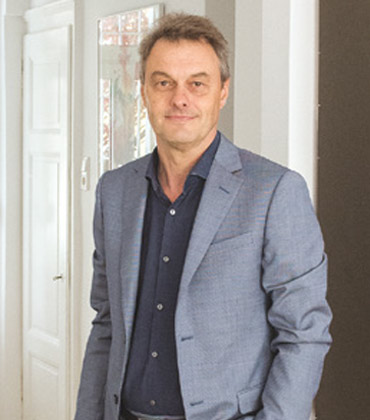“Our company's core is the seamless fusion of engineering and economics. This foundation enables us to understand the finance and science behind sustainability and the functioning of renewable energy projects,” says Dr Thomas Schiller, Managing Director of MACS Energy & Water.
The company's profound understanding of renewable energy comes from its highly qualified and diverse workforce, comprising financial experts, engineers, and climate scientists. This skilled team enables the company to efficiently assist clients in multiple areas.
Firstly, in the realm of sustainable finance, MACS guides FIs in realigning their business policies and utilizing capital to achieve improved sustainable outcomes. The company also collaborates with global governments and NGOs to develop sustainable water and sanitation infrastructure projects.
Another service that MACS provides involves calculating and reporting carbon emissions to assist FIs and businesses in analyzing climate change impacts and risks, and identifying commercial opportunities arising from mitigation efforts. Furthermore, the company evaluates clients' nationally determined contributions (NDCs) in compliance with the global climate action plan defined by the Paris Climate Accord.
The foundation of our company is the interface between engineering and economics. So we understand the finance and physics behind sustainability and renewable energy projects
Additionally, MACS has created eSave, an online platform supporting FIs in assessing the environmental, social, and climate impacts of their lending businesses. This platform empowers FIs, such as German mortgage banks, to calculate the energy-saving potential of green loan products, estimate the GHG footprint of loans with available data, and validate the power generation of renewable energy plants.
MACS's commitment to sustainability is demonstrated through its numerous success stories. In Brazil, the eighth-largest economy globally, the company is helping combat water scarcity by managing water sources and providing a sustainable water supply system to rural families. In 2001, the local government developed a water system, and MACS has helped maintain the water supply for the next 20 years. It guided nearby villages benefiting from the system to adopt the SISAR model, a sustainable management model for small rural decentralized water and wastewater systems in developing countries. The citizens formed the Federation of Water Users Group, and the association members have maintained the water system while ensuring timely water tariff payments.
MACS's ability to assist small municipalities and large FIs with various renewable energy initiatives results from its swift and well-structured company-wide decision-making procedures. Its subsidiary companies in Belgrade and Brazil follow the same processes, thereby enabling the firm to continue its sustainable development efforts, double the global energy efficiency improvement rate, and promote progressive regulatory policies.
Thank you for Subscribing to Energy Business Review Weekly Brief
I agree We use cookies on this website to enhance your user experience. By clicking any link on this page you are giving your consent for us to set cookies. More info

However, if you would like to share the information in this article, you may use the link below:
https://www.energybusinessrevieweurope.com/macs-energy-water
